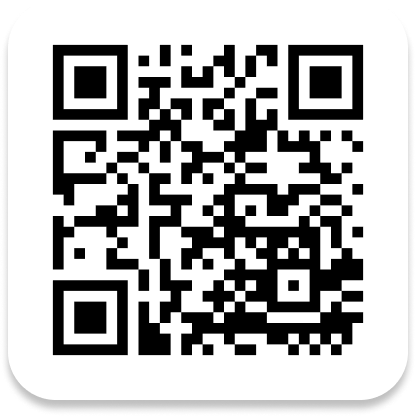Don't Paper Business Cards Work Anymore?
According to a LinkedIn study, 80% of business professionals believe that networking is essential for career advancement.
When you switch to digital business cards, you eliminate the possibility of forgetting physical business cards at home or not taking enough of them to an event. Your recipients need a simple camera scan to access the contents of your digital business card and keep it in their phone book.
When you switch to digital business cards, you eliminate the possibility of forgetting physical business cards at home or not taking enough of them to an event. Your recipients need a simple camera scan to access the contents of your digital business card and keep it in their phone book.

4 Examples of How Paper Business Cards Affect Your Professional Networking
Providing customers with outdated and insufficient information
Effective communication is key to improving your business. That’s why it’s important to understand what information your customers are looking for about you and how you can provide it to them.
Often, exchanging business cards is common during events or meetings. Rarely, however, does a client only need your basic contact information. They may also want to know more about you before moving on.
Because of their compact size, paper business cards don’t allow you to convey all the details your clients need. As a result, you often don’t provide enough information.
Moreover, paper business cards also become obsolete at the slightest change in your contact information. You have to reprint your cards every time you change your contact information.
You can solve this problem by using digital business cards to update your information as needed. In addition to your basic contact information, you can provide your customers with as much interactive information as they need: website URLs, social media, locations on Google Maps, and more.
You can also update this information in real-time.
Often, exchanging business cards is common during events or meetings. Rarely, however, does a client only need your basic contact information. They may also want to know more about you before moving on.
Because of their compact size, paper business cards don’t allow you to convey all the details your clients need. As a result, you often don’t provide enough information.
Moreover, paper business cards also become obsolete at the slightest change in your contact information. You have to reprint your cards every time you change your contact information.
You can solve this problem by using digital business cards to update your information as needed. In addition to your basic contact information, you can provide your customers with as much interactive information as they need: website URLs, social media, locations on Google Maps, and more.
You can also update this information in real-time.
The emergence of uncomfortable friction points during networking
Suppose you turned a potential client into a warm lead during a presentation, and it ended with an exchange of paper business cards. After the card exchange, the traditional approach leads to a series of manual and cumbersome tasks.
Your potential client has to manually save your contact information on their mobile devices, and you have to manually enter your potential customer’s data into your company’s lead management software or CRM.
Switching to virtual business cards eliminates these manual processes. All it takes is one click to access all the information you provide, whether it’s a phone number, social media links, or web URLs. The best part is that your customers can save this information to their mobile devices without manual input.
As soon as your recipient sends a contact form, it’s automatically recorded in your virtual address book (on your digital business card provider’s dashboard). From there, you can view and manage all of the leads you’ve collected using your virtual business card.
You can also integrate this address book into your organization’s CRM. This means you don’t have to manually record every piece of information you receive into your CRM software.
Your potential client has to manually save your contact information on their mobile devices, and you have to manually enter your potential customer’s data into your company’s lead management software or CRM.
Switching to virtual business cards eliminates these manual processes. All it takes is one click to access all the information you provide, whether it’s a phone number, social media links, or web URLs. The best part is that your customers can save this information to their mobile devices without manual input.
As soon as your recipient sends a contact form, it’s automatically recorded in your virtual address book (on your digital business card provider’s dashboard). From there, you can view and manage all of the leads you’ve collected using your virtual business card.
You can also integrate this address book into your organization’s CRM. This means you don’t have to manually record every piece of information you receive into your CRM software.
Forgetting to bring your business cards to networking events
Attending networking events is one of the most effective ways to find new customers for your business. However, attending these events requires preparation, and you need to make sure you’re equipped with all the tools you need to network effectively.
When it comes to paper business cards, there’s always a chance of losing or forgetting to bring them with you. To always have access to your business cards, upgrade to a digital version.
You can store your virtual business cards on your mobile device as an Apple or Google Wallet pass or a business card QR code. And because you always carry your mobile device with you, you can share your digital business card whenever and as often as you need.
When it comes to paper business cards, there’s always a chance of losing or forgetting to bring them with you. To always have access to your business cards, upgrade to a digital version.
You can store your virtual business cards on your mobile device as an Apple or Google Wallet pass or a business card QR code. And because you always carry your mobile device with you, you can share your digital business card whenever and as often as you need.
Making unnecessary follow-up calls
There are numerous benefits to doing follow-up calls when building relationships with customers. However, there’s a fine line between helpful follow-ups and those that can hurt your sale or any future business.
Suppose your recent meeting ended with a potential customer asking for your paper business card, signaling their interest in your product. However, the potential customer never called back.
If you want to find out your potential customer’s interest during and after a networking interaction, you can do so with a digital business card.
Unlike paper business cards, digital business cards provide card scan tracking and analytics that help you capture engagement metrics. You can plan a follow-up and choose your approach using the information you get from these metrics so you never hurt potential future business.
Suppose your recent meeting ended with a potential customer asking for your paper business card, signaling their interest in your product. However, the potential customer never called back.
If you want to find out your potential customer’s interest during and after a networking interaction, you can do so with a digital business card.
Unlike paper business cards, digital business cards provide card scan tracking and analytics that help you capture engagement metrics. You can plan a follow-up and choose your approach using the information you get from these metrics so you never hurt potential future business.

Demonstrate Professionalism in Your Networking
With the CardEx digital business card solution, you can access a full suite of features that enable you to create and share comprehensive virtual business cards on a large scale. Share your digital business card using Apple Wallet (or Google Wallet), and conveniently save the recipient’s contact information through a two-way contact exchange.
These functionalities do not require you to download an additional app, and all your online activity is protected with enterprise-grade security measures.
These functionalities do not require you to download an additional app, and all your online activity is protected with enterprise-grade security measures.







